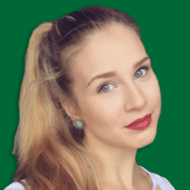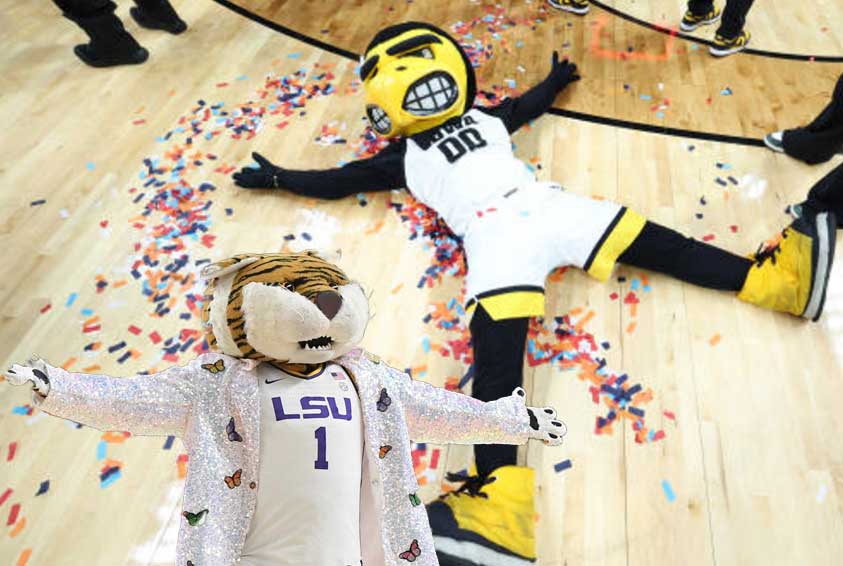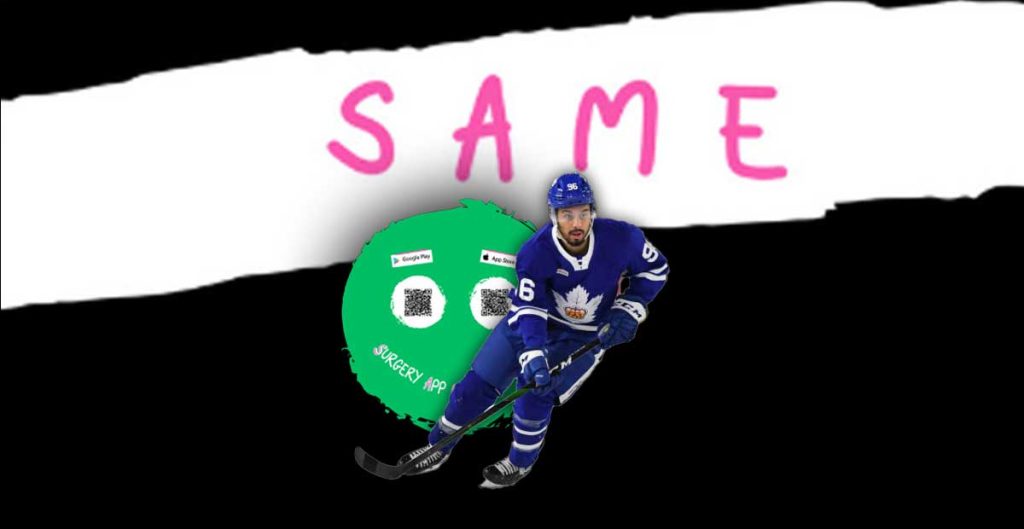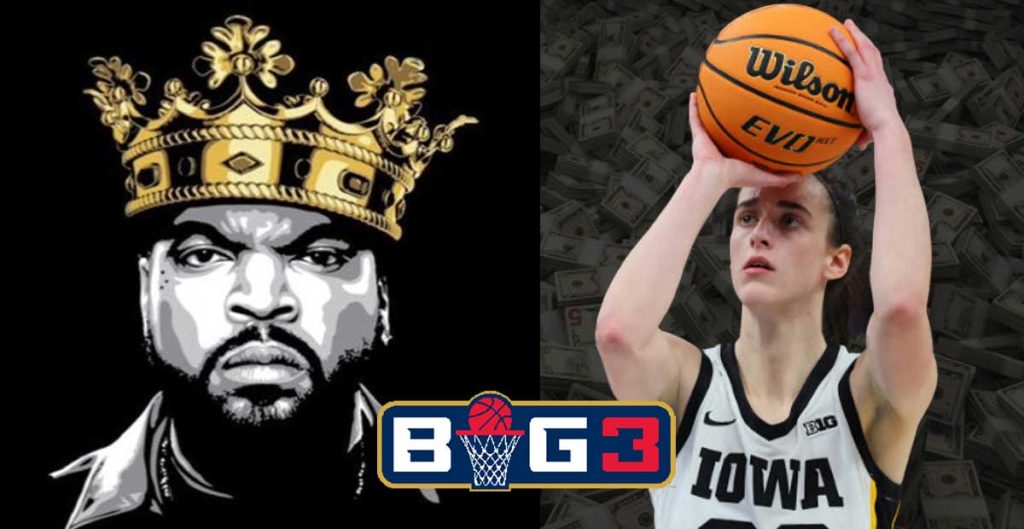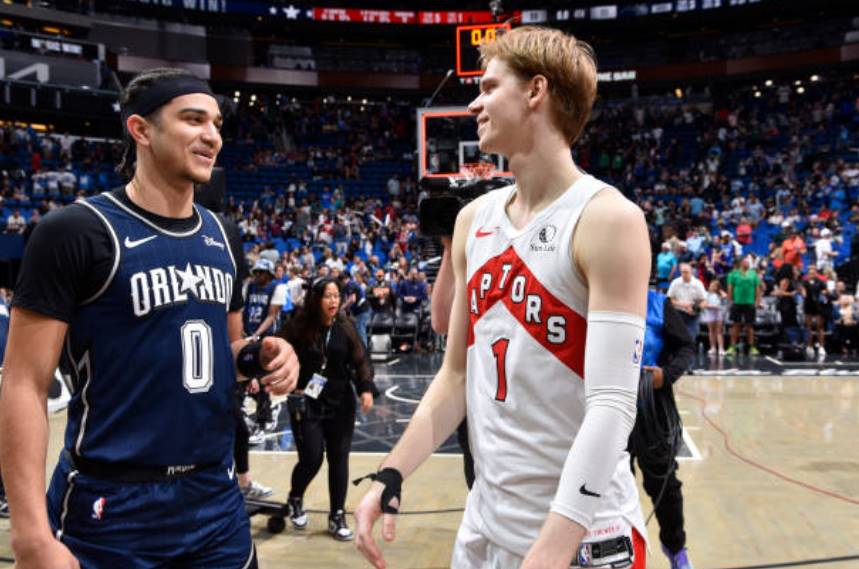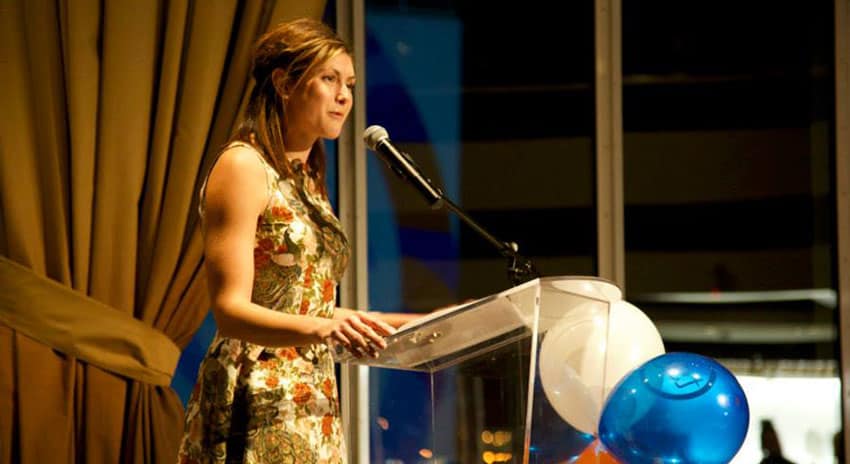
Right To Play’s Laura McPhie Calls For Visual & Mental Diversity And Safe Work Environments In Sport
Laura McPhie | Sport for Development Specialist | Right to Play

Sport is an interconnected ecosystem. When coaches are not in a healthy place, how can they create that for their athletes? If athletes can not bring their full selves to their sport, how can they succeed?
Laura McPhie
Sport for Development Specialist
Right to Play
Tell us about your role as the Sport for Development Specialist of the Right to Play.
Right To Play believes that all children have a simple right to play and that play can help empower children to rise above challenges.
Here on Turtle Island, our program focuses on training Indigenous youth workers to design and implement play-based programming in their communities. My role is to design sport and physical activity training for youth workers based on their community goals.
One day, it might involve a lot of research and writing. Another day it might involve meetings with athletes, coaches, or sport specialists. My favorite days are when I get to facilitate training for youth workers and hear how their programs are developing. The purpose of this training is to try to build community members’ capacity to run sport-based programming while integrating community-identified life-skills. For instance, I am working on a project that is going to try to weave together sports training with conversations of gender allyship.
You recently released a statement about how before moving into the non-profit part of the industry, you were a swim coach but you quit due to the glass ceiling and discrimination you faced in your role. Tell us about that!
Leaving coaching was such a hard decision. I loved it but ultimately, I could not see a path to success for me in that career.
Even as adults we need to be able to see people like us being successful to understand how to get there. That combined with years of hiding parts of myself or having other parts commented on in negative ways made walking away necessary.
I am a queer Indigenous woman.
One year a male mentor coach advised me that I would never be a good head coach because “when women leave the house, they can’t stop thinking about their children and the house”.
In another instance, I reported to my board of directors that the head coach had repeatedly inappropriately touched my back and shoulders and they noted that was not something of concern to them. This same coach had repeatedly told me that my work was not worth a 5th of my male colleague’s pay.
Once a well-meaning colleague asked me to consider editing how much queer content I posted on social media.
Over 15 years in coaching and I was never ‘out’ in coaching despite being out in all other aspects of my life.
There is this belief in the sports world that we will dedicate our lives and every waking moment to coaching but that we can not actually bring our full selves to the role. My identity gives me a unique, strong, and resilient mindset and set of experiences to share with youth but in coaching it was considered something to be edited, commented on, and belittled.
I have more stories of aggression and micro-aggressions from the 15 years of coaching and so many others have even more. I think that it is leading to a brain-drain in the industry. I think the state of coaching and the health/mental health of coaches is directly linked to how youth experience sport.
CBC also recently released investigation results that revealed a racial deficit in sport. What steps do you think need to be taken to fix the issue of discrimination is sports?
Hire people who don’t look or think like you.
We need a mix of visual and mental diversity in sport.
Studies show that people have a bias to think the ‘most qualified candidates’ are those that are qualified in the same way they are qualified. We need to diversify what qualifications look like to us and invest in identifying and fostering talent.
It isn’t enough to say the door is open when there isn’t a safe path for people to follow to that door. For diverse folks in sport, the path is often one full of various levels of aggression.
In my last years of working as a coach, I had a male peer recount to me how he and a bunch of other male coaches pushed drinks at a female colleague all the while repeatedly bringing up sexual acts she should do with her husband that she didn’t enjoy. Her husband was sitting right there.
Imagine what moments like that teach us about our value in the workplace. Beyond that, bringing it up often leads to people dismissing your experience. We need to start taking these instances seriously and making a safer path for people to follow.
Get training.
There needs to be mandatory training on anti-racism, anti-sexism, 2SLGBT rights, creating safe workspaces, etc. for coaches, parents, and athletes.
The layers of aggressions that coaches experience from all aspects of their jobs is not sustainable for most diverse folks. On top of that, coaches need access to mental health support and sustainable contracts.
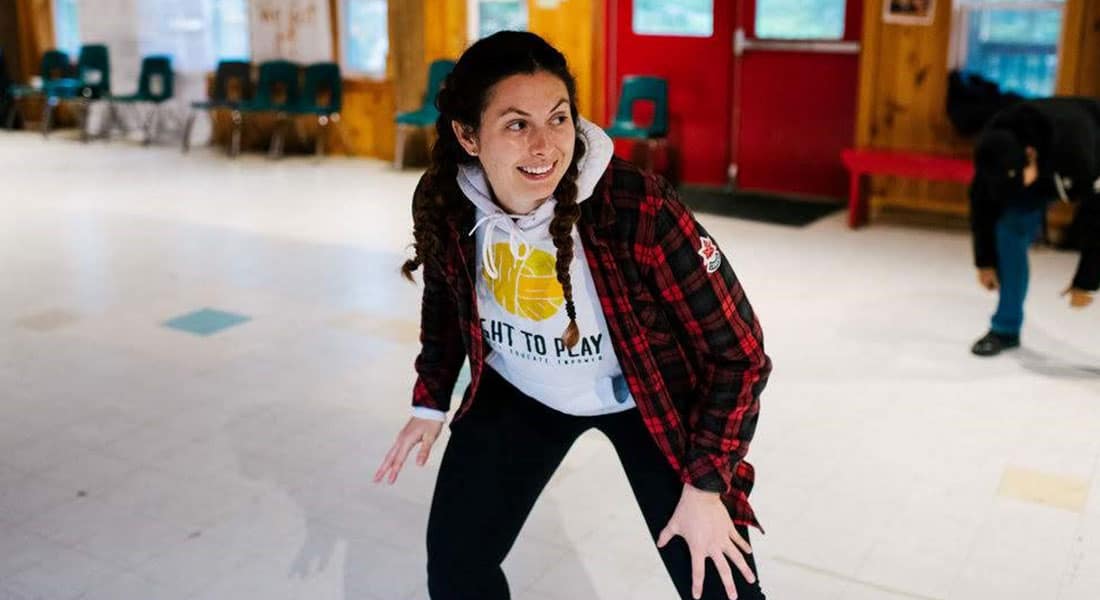
Why is your position at Right To Play a better fit for you and your career than your previous position in coaching?
A simple reason is that it provided me with a stable permanent position that offered both physical health and mental health support.
It is remarkable how much that can influence people who are constantly navigating their identities being a target for aggression in workspaces.
Right To Play also embraced and encouraged using my diverse experiences in my work. The training I mentioned above I now get to design and facilitate, hopefully helping to make safer sport-spaces because of it.
I won’t pretend we are perfect, all workplaces have work to do, but there are simple ways to make people feel seen and heard. My managers at Right To Play have fostered my life experiences as strengths rather than as weaknesses and that allows me to actually bring my full self to work.
What makes you so passionate about advocating for diversity, equity, and inclusion? What can other people and other advocates do to support you and affect change of their own?
Every person has a right to feel safe in whatever space they are standing in. When a workplace can do that, they get the full potential of their employees rather than just bits and pieces.
Sport is an interconnected ecosystem. When coaches are not in a full and healthy place, how can they create that for their athletes? If athletes can not bring their full selves to their sport, how can they succeed? Ultimately we create a healthier world when people are not living in fear and I think we should all be able to get behind that simple fact.
It is the responsibility of allies to do the work. That means educating yourself through reading, listening, watching, etc. Don’t expect diverse folks to ‘out’ themselves and ask for what they need just because. We need to create an environment where they would feel comfortable first rather than waiting for them to arrive and to ask for it.
Allyship is a verb, it is an action. It means you have to make continuous steps forward. The moment you think you have been a successful ally is the moment you likely also need to keep learning. It is a constant and continuous process that will last all your life. Here are some simple ones:
- Ask people what they want to be called – nicknames, first names, pronouns, etc.
- Set group contracts on what respectful behaviour looks like, sounds like and feels like.
- Use neutral terms like ‘folks’… it will feel weird at first, but honestly, it is really easy.
- Start to see life experience as qualifying experience.
- Remember that not everyone thinks in the same way – be that fast, out loud, with confidence, etc. Make spaces and ways for people to give feedback.
[get_current_post_author_pic_and_name]
Laura McPhie made the tough call to leave her 15-year coaching career that she was very passionate about behind to seek a healthier environment for her to develop her career in sport. She discussed the importance of the continuous effort required to ensure everyone is comfortable in their work environment. This positive climate fosters the success of the team or organization and the athletes that they strive for. Adults and children alike flourish in supportive environments, and if we in sport want to get the most of our human capital, we can achieve potential talent maximization by actively bettering our workspaces every day!
The Latest

